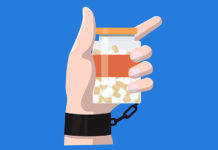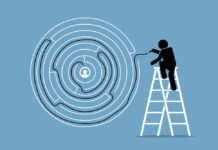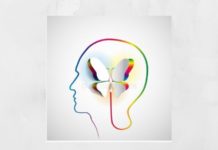How to Avoid Severe SSRI Withdrawal Symptoms?
After long-term use, most people are going to have serious symptoms when stopping SSRIs. Many people are going to have transient, mild to moderate difficulty and some are going to end up falling down the akathisia rabbit hole. That is a long, difficult drop.
Playing the Odds: Antidepressant ‘Withdrawal’ and the Problem of Informed Consent
If I thought that it was possible, I would have opened a string of clinics all over the country to help get people off of antidepressants. Unfortunately, the problems that sometimes occur when people try to stop an SSRI antidepressant are much more severe and long-lasting than the medical profession acknowledges, and there is no antidote to these problems. The truth is, giving people information about taking antidepressants is like giving information to people who are enroute to a casino; they go because they hear that some people win (at least for a time), but the losers are the ones who ultimately pay for it all — and the odds are not in their favor.
The New Yorker Peers into the Psychiatric Abyss… And Loses Its Nerve
The New Yorker's story on Laura Delano and psychiatric drug withdrawal is a glass-half-full story: It addresses a problem in psychiatry and yet hides the deeper story to be told. A story of how her recovery resulted from seeing herself within a counter-narrative that tells of the harm that psychiatry can do.
Things Your Doctor Should Tell You About Antidepressants
The conventional wisdom is that antidepressant medications are effective and safe. However, the scientific literature shows that the conventional wisdom is flawed. While all prescription medications have side effects, antidepressant medications appear to do more harm than good as treatments for depression.
Harrow + Wunderink + Open Dialogue = An Evidence-based Mandate for A New Standard...
In the wake of the new study by Dutch researcher Lex Wunderink, it is time for psychiatry to do the right thing and acknowledge that, if it wants to do best by its patients, it must change its protocols for using antipsychotics. The current standard of care, which—in practice—involves continual use of antipsychotics for all patients diagnosed with a psychotic disorder, clearly reduces the opportunity for long-term functional recovery.
The Reckoning in Psychiatry Over Protracted Antidepressant Withdrawal
Medically-induced harm—affecting tens of millions of people worldwide—has taken the field decades to take seriously.
Antidepressant Withdrawal: An Unknown Disorder?
Antidepressant withdrawal is no longer an unknown disorder since knowledge on this topic has grown enough to be translated into practice. As proposed by George Engel in 1977, medical doctors, including psychiatrists, can observe and listen to their patients and develop a program to treat withdrawal and restore health.
The Temptation of Certainty: David Foster Wallace, Suicide and Psychiatric Drug Withdrawal
While increasing numbers of Americans are being prescribed antidepressants, the Centers for Disease Control reports that suicide rates increased 28% from 1999 to 2010. Trained professionals remain unable to predict who is at risk. Their guess is as good as chance.
The Taper
Part of what has scared me straight about ever starting a patient on an antidepressant (or antipsychotic or mood stabilizer) again is bearing witness to the incredible havoc that medication discontinuation can wreak. I am half way through the first e-course of its kind (on withdrawing from psych meds), and it has been incredibly well-received. There are so many people out there, disenfranchised by psychiatry, skeptical of its promises, and who want a better way, a more thoughtful assessment of them as whole persons. We seem to be onto something here, so let’s keep the dialogue flowing, keep our eyes wide open, and reform what psychiatry means, one patient at a time.
Psychiatric Drugs: More Dangerous Than You Ever Imagined (A New Video)
“Psychiatric Drugs are More Dangerous than You Ever Imagined” is the newest video in my series Simple Truths about Psychiatry. It provides a simple, direct and inescapable warning about this epidemic of harm induced by psychiatric drugs. The video sounds a necessary alarm about this growing tragedy, involving millions of people and their families, who never foresaw the disabling results of taking psychiatric drugs and giving them to their children.
How Academic Psychiatry Minimized SSRI Withdrawal
If academic psychiatry is evidence-based, why did it take two decades to recognize SSRI withdrawal as widespread and chronic among patients?
Long-Term Antipsychotics: Making Sense of the Evidence in the Light of the Dutch Follow-Up...
In the 1950s, when the drugs we now call ‘antipsychotics’ first came along, psychiatrists recognised that they were toxic substances that happened to have the ability to suppress thoughts and emotions without simply putting people to sleep in the way the old sedatives did. The mental restriction the drugs produced was noted to be part of a general state of physical and mental inhibition that at extremes resembled Parkinson’s disease. Early psychiatrists didn’t doubt that this state of neurological suppression was potentially damaging to the brain.
10 Things I Learned in 5 Years Consulting With People Coming Off Psych Drugs
It's been over 5 years since I started offering non-medical consultations to people in the process of coming off or hoping to come off psych drugs. I wanted to share here some things I have learned in this process. Despite how far we have come, we have a long way to go in the quest to liberate all who wish to be liberated from psychiatry.
Do Antidepressants Worsen the Long-term Course of Depression? Giovanni Fava Pushes the Debate Forward.
In 1994, Italy's Giovanna Fava, editor-in-chief of the journal Psychotherapy and Psychosomatics, wrote for the first time of his concern that "long-term use of...
Antidepressants and Pregnancy: Who Says They Are Safe?
Depression during pregnancy is an important issue. Depression should not be ignored and depressed pregnant women deserve good treatment and care. Part of that good care, though, is providing them with full and correct information. I care for pregnant women taking antidepressants on a daily basis and too often they tell me that the only counseling they received about the medication was, “my doctor told me it’s safe in pregnancy.” This post will review the evidence in this area and address the counterarguments.
Early Death Associated With Antipsychotics
There are a vast number of studies that document the diverse range of side effects caused by antipsychotic drugs. These adverse effects include brain...
Stopping the Madness: Coming Off Psychiatric Medications
Millions of patients find themselves caught in the web of psychiatric sorcery - a spell cast, hexed, potentially for life. They are told that they have chemical imbalances. They are told that the most important thing they can do for themselves is to "take their medication," and that they will have to do so "for life." Most egregiously, patients are sold the belief that medication is treating their disease rather than inducing a drug effect no different than alcohol or cocaine. That antidepressants and antipsychotics, for example, have effects like sedation or blunting of affect, is not a question. That these effects are reversible after long-term exposure is.
Consent and Psychiatry: Problematizing the Problematic
It is rare to get involved in a dialogue over psychiatry without sooner or later someone defending the use of such “treatments” as ECT “as long as they are consented to,” with the term “informed consent” periodically employed. Herein lies the context for this piece. The issue that I want to probe, to be clear, is not whether force should be used—for of course it shouldn’t—but the thorny issue of consent itself—what exactly constitutes consent and what other issues besides consent are critical to factor in when considering what it is and is not legitimate for a “medical” professional to offer.
The Review on Antidepressant Withdrawal That Cochrane Won’t Publish
Peter Gøtzsche and Anders Sørensen on trying to get a review of methods for safe antidepressant withdrawal published in Cochrane: "They sent us on a mission that was impossible to accomplish" to "protect the psychiatric guild."
Do Antipsychotics Worsen Long-term Schizophrenia Outcomes? Martin Harrow Explores the Question.
Martin Harrow and Thomas Jobe have a new article coming out in Schizophrenia Bulletin that I wish would be read by everyone in our society with an interest in “mental health.” Harrow and Jobe, who conducted the best study of long-term schizophrenia outcomes that has ever been done, do not present new data in this article, but rather discuss the central question raised by their research: Does long-term treatment of schizophrenia with antipsychotic medications facilitate recovery? Or does it hinder it?
Mental Health Survival Kit, Chapter 4: Withdrawing from Psychiatric Drugs (Part 5)
Withdraw from psychiatric drugs at your own speed—according to what you feel. Don’t reduce again before you feel stabilised on the previous dose.
Antidepressants, Pregnancy, and Autism: Really Time to Worry
On Monday April 14th, an important new study from Harrington et al was published in the journal Pediatrics (the official journal of the American Academy of Pediatrics.) The study was designed to examine prenatal use of selective serotonin reuptake inhibitors (SSRIs) and the risk of autism spectrum disorders (ASDs) and other developmental delays (DDs). Nine hundred sixty-six mother child pairs were studied and the researchers found that in boys, the association between maternal SSRI use in the first trimester and autism was very strong (OR 3.22). The association between third-trimester maternal SSRI use and developmental delay was even stronger, with an odds ratio of 4.98.
Psychiatric Drug Withdrawal in Spain
My study, in which I slowly withdrew people from prescribed antipsychotics and antidepressants, found that it is possible to decrease both spending on psychiatric drugs and patients' chronic exposure to them. In general, the drug-reduction process was well-tolerated and well-accepted among those treated.
New Rat Study: SSRIs Markedly Deplete Brain Serotonin
Dutch investigators will soon publish an article in Neurochemistry International that sheds light on how SSRI antidepressants affect the serotonergic system over the longer...
Benzodiazepines: Dangerous Drugs
When the benzodiazepines were first introduced, it was widely claimed, both by psychiatrists and by pharma, that they were non-addictive. This claim was subsequently abandoned in the face of overwhelming evidence to the contrary, and the addictive potential of these products is now recognized and generally accepted.



















